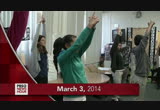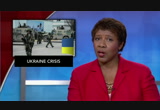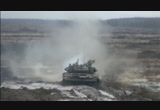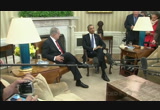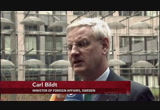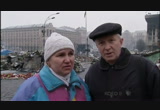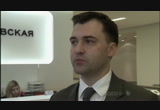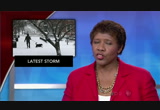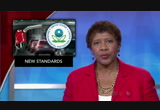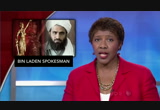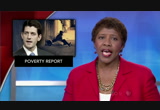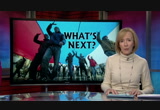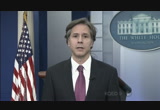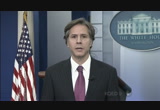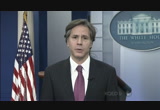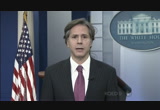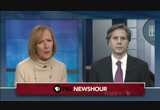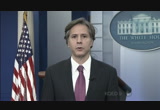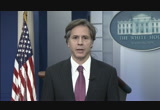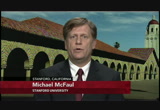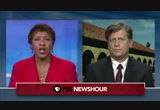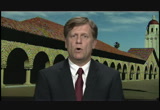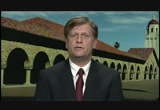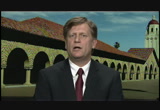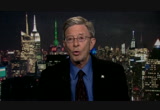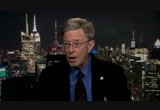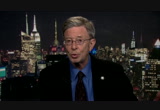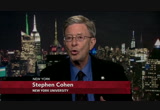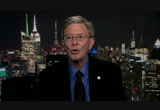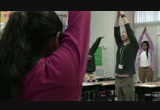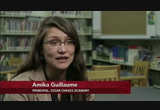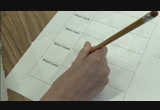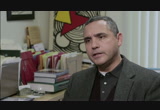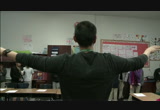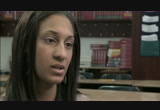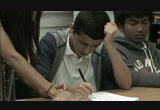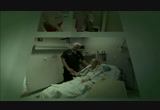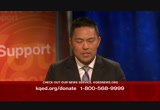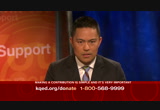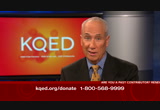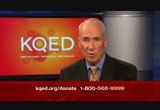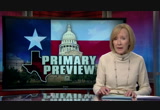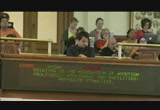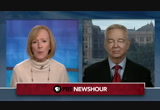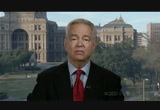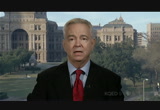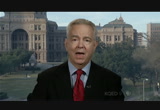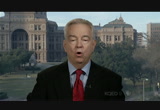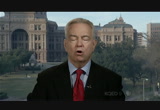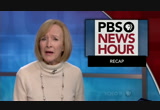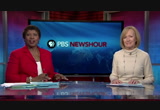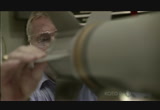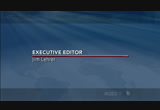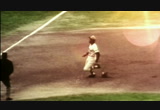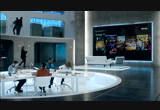tv PBS News Hour PBS March 3, 2014 6:00pm-7:01pm PST
6:00 pm
captioning sponsored by macneil/lehrer productions >> ifill: tensions over the fate of ukraine escalated today. russia tightened it's military grip on the crimea region, while the u.s. and europe ewighted punitive actions against moscow. good evening, i'm judy woodruff. >> ifill: and i'm gwen ifill. also ahead this monday, yoga and concentration exercises-- for children. bringing focus and calm to young lives afflicted by chronic stress and p.t.s.d. >> do i think that stress of our community can get to a child? 110% absolutely. for every child who acts out in out school, i can look exactly to the point in their life where things arent working and every single time there is a concrete, very sad story, about why this
6:01 pm
child is not getting what he or she needs. plus, the u.s. election season heats up, we look at the fight to become texas' next governor, ahead of tomorrow's primaries. those are just some of the stories we're covering on tonight's pbs newshour. >> major funding for the pbs newshour has been provided by: >> i've been around long enough to recognize the people who are out there owning it. the ones getting involved, staying engaged. they are not afraid to question the path they're on. because the one question they never want to ask is, "how did i end up here?" i started schwab with those people. people who want to take ownership of their investments, like they do in every other aspect of their lives.
6:02 pm
>> and with the ongoing support of these institutions and foundations. and... >> this program was made possible by the corporation for public broadcasting. and by contributions to your pbs station from viewers like you. thank you. >> ifill: the confrontation in crimea showed no sign of abating today, as russia and the west faced off. president obama and other western leaders talked of sanctions, but there was no sign moscow was listening. chief foreign affairs correspondent margaret warner reports on the day's developments. >> reporter: across crimea, russian forces took over border crossings and surrounded military compounds.
6:03 pm
there were reports of a russian ultimatum to ukrainian forces there to surrender by 5:00 a.m. local time tuesday. that was denied as nonsense by moscow. a ukrainian officer at an infantry base said his command remained intact: >> ( translated ): we have not handed over any weapons. our entire team is still here. we remain faithful to the ukrainian people, we are ready to fulfil our tasks, and should it be necessary, we are ready to lay down our lives for the oath we have taken to the people of ukraine. >> reporter: there've been no overt hostilities since the russian takeover of crimea began saturday. but russian president vladimir putin watched war games today outside st petersburg, near the finnish border. similar maneuvers continued in southern russia along the ukraine border, amid fears moscow could move into other parts of eastern ukraine, where ethnic russians predominate. in kiev, the new prime minister, arseniy yatsenyuk, spoke after meeting with british foreign
6:04 pm
secretary william hague. >> those who are today in crimea, they present an illegal, and i would reiterate again, an illegal power in crimea. they tried to squeeze ukrainian assets; they try to confiscate ukrainian property; they try to disarm ukrainian army. for these kind of actions they will be prosecuted under domestic and international law and they have to know this. >> reporter: no one talked of a military response. instead, the u.s. and others sought to muster diplomatic and economic pressure. >> i think the strong condemnation that was received by countries around the world indicates the degree to which russia is on the wrong side of history on this. >> reporter: president obama, meeting with israel's prime minister at the white house, warned russia will pay a price. >> there are really two paths that russia can take at this point.
6:05 pm
obviously the facts on ground in crimea are deeply troubling and russia has a large army that borders ukraine. but what is also true is that over time, this will be a costly proposition for russia. >> reporter: the president is dispatching secretary of state kerry to kiev for meetings tomorrow with interim government leaders and parliamentarians. and he called on congress to act quickly on economic aid for ukraine. in brussels today, kerry's european union counterparts urged russia to take the path of mediation. carl bildt is sweden's foreign minister >> i think some in russia are still impressed by their military might. but i think after a while they will see the limitations. military might is not the way to make friends in europe, not to make friends in the world, and i think at some point in time they will start to see that.
6:06 pm
>> reporter: but in switzerland, russia's foreign minister, sergey lavrov, again said moscow was protecting russian citizens in crimea. and he lashed back at threats of economic penalties. >> ( translated ): those who attempt to interpret the situation as an act of aggression and threaten us with sanctions and boycotts, these are the very same partners of ours who consistently have encouraged political forces close to them to deliver an ultimatum and refuse dialogue, to ignore the concerns of southern and eastern regions of ukraine, which has ultimately polarized ukrainian society. >> reporter: back in kiev, rumors of war stirred differing responses. this couple, a ukrainian woman and russian man, urged calm. >> ( translated ): we are against the conflict. we are for peace and friendship. we do not want war. >> we do not want people to kill each other. we want people to live peacefully everywhere, on all continents and everywhere in other countries. >> reporter: but others seemed ready to man the ramparts.
6:07 pm
>> we have no fear at all. now our children are going to military registration offices. and if needed, we will create people's emergency volunteer corps and we will protect our state. >> reporter: in moscow, thousands marched sunday in support of putin's move into ukraine. >> to give up ukraine for the benefit of radicals would be very bad. putin did a fantastic thing when he forced georgia to peace. the same thing needs to be done with ukraine too. >> reporter: yet not all russians agreed. a small protest outside the defense ministry resulted in about 40 arrests yesterday. >> ( translated ): we don't want the war to begin between our country and ukraine, which we consider to be our brotherly government, because of imperial ambitions of russian ruling elites. >> reporter: global markets also reacted nervously, nowhere more so than in russia. >> ( translated ): we see a broad steady fall across all assets, which only confirms that macroeconomic factors do not matter here, or an isolated story in some one asset class. the whole market just gave way, it rapidly went down.
6:08 pm
>> reporter: the main russian stock exchange was down 11% on the day, and the ruble traded at its lowest rate ever versus the dollar and euro >> ifill: we'll have much more on ukraine, including some of this afternoon's u.n. security council debate and an interview with a top white house advisor, right after the news summary the situation in ukraine shook up wall street. the dow jones industrial average lost 153 points to close at 16,168. the nasdaq fell more than 30 points to close at 4,277. and the s-and-p 500 dropped more than 13 points to finish at 1845. the tensions also sent oil prices sharply higher, to nearly $105 dollars a barrel. the winter of 2014 dealt another blow to much of the eastern u.s. today. ice and snow-- up to eight inches in places-- shut down much of the mid-atlantic, including official washington.
6:09 pm
it also grounded thousands of flights and forced schools to close again. meanwhile in north texas, an icy interstate caused a miles-long backup during the morning commute. snowstorms and freezing temperatures held back the u.s. auto business again last month. general motors, ford and toyota all reported sales were down by single-digits. volkswagen saw a 14% decline. chrysler and nissan fared better, reporting double-digit gains. the environmental protection agency has finalized new rules to dramatically reduce the amount of sulfur in gasoline. the chemical is linked to respiratory disease and can foul pollution control equipment in cars. the oil and gas industry warn the rules will drive gas prices up by 6 to 9 cents a gallon. but the e.p.a. says there will be virtually no effect. president obama sought today to salvage hopes for an israeli- palestinian peace plan. at a white house meeting, he pressed israeli prime minister benjamin
6:10 pm
netanyahu for tough decisions, while netanyahu held out little hope of a breakthrough. >> it is still possible to create two states, a jewish state of israel and a state of palestine in which people are living side by side in peace and security. but it's difficult. it requires compromise on all sides. >> israel has been doing its part, and i regret to say that the palestinians haven't. i know this flies in the face of conventional wisdom, but it's the truth. >> ifill: even as the two met, israel announced it started work on more than twice as many homes in west bank settlements last year, than the year before. >> osama bin laden's son-in-law went on trial in new york today for on charges he plotted to kill americans in his role as spokesman for al-qaeda.
6:11 pm
>> if convicted. he could face life in prison. the supreme court is be. the supreme court is set to decide whether an i.q. score alone is enough to say someone qualifies for the death penalty. lawyers for a man on florida's death row argued today he is mentally disabled, even though his i.q. is above the widely accepted cut-off of 70. the high court banned executions of mentally disabled inmates, 12 years ago, but the states decide who fits that definition. house republicans opened a campaign today for a total overhaul of social programs. house budget chair paul ryan issued a 204-page critique of federal anti-poverty efforts. he argued scores of programs actually create a poverty trap that keep people from getting ahead. the report came a day before the president lays out his budget plan for the coming fiscal year. a slavery-era drama and a sci-fi thriller headlined the winners at last night's academy awards.
6:12 pm
the "best picture oscar went to 12 years a slave, which also won for best adapted screenplay and best supporting actress. gravity won seven oscars, the most of any film, including best director and most of the technical categories. still to come on the newshour u.s. deputy national security adviser tony blinken on the ukraine crisis. and a debate over moscow's military moves in crimea. plus, helping kids cope with stress and p.t.s.d. and the fight to become the lone star state's next governor. >> woodruff: we focus now on the united states' response to russian actions in ukraine. the u.n. security council held a for that, we turn to president obama's deputy national security advisor, tony blinken. he joined us from the white house earlier this evening.
6:13 pm
>> tony blinken, welcome. despite a 90-minute phone call. russian is taking control of the crimean region. is there anything that can be done to get them to pull back? >> judy, the president has been leading the effort to mobilize the international community in support of ukraine and to isolate russia for the actions its taken in ukraine and we're seeing strong condemnations from the g-7 countries, nato and the individual countries around the world and that pressure which is beginning to isolate russia's already having an impact. we've seen russian financial markets dropped 13% today, the riewgle hit an all eo time low. we in coordination with partners pulled out of preparatory meetings for the next g-8 meeting supposed to take place in sochi of all places and clearly is going to have a showing impact on the trade and commercial relations russia wants with the west and the united states. so a cost is already being
6:14 pm
exacted and the president's made it clear that if russia continues on this path, there will be additional costs. >> woodruff: is that in effect saying the u.s. is prepared to let the russians stay in crimea given the historic ties? >> there's a clear choice and path -- the russians can continue to pursue the course they're on and face growing and increasing isolation and pressure or it's actually very straightforward, they can withdraw their troops and, if they have genuine concerns about the treatment of ethnic russians, which the excuse they've given for going in, then without violating ukrainian sovereign territory or trading they can engage with the government of ukraine and we can bring in international monitors and inspectors from the united nations, the osce, organizations to which russia belongs and it can play an active roalt in making sure its interests are up held. the president was clear today that's the choice before russia now. >now. >> woodruff: at this time, there's no sign the russians are
6:15 pm
pulling back and every evidence they're digging deeper. how worried is the administration that the russians will go further into the rest of ukraine? >> judy, the longer this goes on and if russia persists in this course, the costs are going to go up in terms of its isolation and in terms of being able to do things it wants to do and won't be able to do. for example, the way that president putin, i think, defining russia's power is to try to increase global and economic influence. everything he's doing and we're doing in response is actually gutting that influence. it's the only way at the end of the way you have to influence people is by intervening militarily or coarsing or bribing them, you won't have much power for a long period of time. so russia needs to change course. and there is a way forward to make sure its interests, its longstanding ties to ukraine of culture, language and history are protected and the ukrainian
6:16 pm
people get to choose their future. >> woodruff: what if president putin has effectively decided he's prepared to live with the costs, that it means so much to russia not to have ukraine not go the direction its going that he's prepared to accept the financial and cultural and other costs you're mentioning? >> there are plenty of people around president putin that would not want to accept the cost. we're looking at measures taken in coordination with other countries to increase the pressure and a isolation and, over time, if it takes that long, i think the cost will get to a pointed where they decide to change course. but we don't need to go there. there's a very clear way forward now, there's a clear path to deescalate this problem and uphold the interest that russia asserts, but to get russian troops out, international inspectors in, russia and ukraine talking, we're prepared to facilitate all that. >> should the u.s. hold off on any further significant economic sanctions until the europeans
6:17 pm
are together united with the u.s. so you can present a united front? >> you know, we're working on a package of measurers, but we want to maximize their impact if we have to go down that route. what the president has been doing in mobilizing international support, in spending the last few days on the phone virtually nonstop with leaders around the world is building that support and making sure that whatever actions we take have the greatest impact possible. it's one thing for the united states to do something in isolation, it's another thing when we write along the rest to have the world. >> woodruff: can you trust president putin's word? because it was just, i think, days ago that the president and secretary kerry had been talking with top russian officials and, in the beginning, they sent every indication they were not going to move forward and, yet, they have. so how are you to believe or to trust them as you talk to them going forward? >> it's not about trust.
6:18 pm
it's about actions, determining whether they do what they say and, if they don't, making sure that there are clear repercussions for that. but what we're looking for is a clear action and, again there's a way out of this and a way forward that involves russia pulling back, bringing its troops back to their barracks and allowing the international inspectors to get in there. if they have genuine concerns about the way people are treated, those inspectors can e-verify facts and make sure the people areo protected. >> woodruff: do you have any sense that message is getting through? who are around president putin? >> the oligarks who support him and others who support him who clearly want to be engaged around the world, want to do business around the world and travel around the world. they have to ask themselves if the course russia is on to lead to greater isolation will allow them to do what they want to going forward and, over time in the days ahead, again, i think
6:19 pm
you're seeing the pressure mount. as i said earlier, we're already seeing a profound impact on russia's financial markets and those are real costs and going to raise real questions. >> woodruff: finally, tone tony blinken, what do you say to the republicans who say that part of what is going on is president obama is not feared by the russians an and therefore are operating with impunity? >> there is a lot of talk. the president has been mobilizing the international community in support of ukraine and to isolate russia for the actions taken here, that's been very successful in recent days. if you look at what we're doing around the world, i don't think our leadership in building extraordinarily deep ties of trade for examiner i in asia ans important in our leadership. but in this particular instance,
6:20 pm
the president is mobilizing the international community. >> woodruff: tony blinken, deputy advisories to pt all eyes are now on russia, as administration officials try to determine how far vladimir putin will or wont go for that we get two views, starting with michael mcfaul, who stepped down as u.s. ambassador to russia just last week. you know gla vladimir putin or e been the senior official who's known him best. is he a bully or a pragmatist in this? >> well, he's a frustrated leader is the way i would describe it. he had a vision for the eurasian economic union, as he called it, where he would reunite in an economic union the former pieces of the soviet union in parallel to the european union. and he thought he had achieved a great victory last fall when president yanukovych decided not
6:21 pm
to sign up with an agreement with the european union and decided to start negotiations with russian but that fell apart when he lost power a few weeks ago. i was working with the government last week meeting with senior russian government officials and they were extremely frustrated with the weakness in their view of president yanukovych and how he fled and why he did not stay to represent their interests. so what i think you've seen from president putin in crimea is his counter-punch. it's tactical. i don't think he knows where he's going with this in the end game, but a way to put on notice the people of ukraine and the rest of europe that he's not just going to give away in his view ukraine. >> woodruff: when the president says to him as we're told in a phone conversation that he's on the wrong side of history, what leaf badge does the u.s. have to enforce that notion? >> well, you just heard tony outline it eloquently.
6:22 pm
president putin made his move here, but there are now costs. the inspector of the economic costs has already been seen, how people are responding in the market in moscow. i have lots of friends, business friends who are panicked about this because they have a different vision of russia. they also want russia to be a great power but they want it to be a great economic power. they want it to be a country that's respected in the world. i just was in sochi a few days ago and the bung russians were incredibly proud of the new russia on display there. this action in crimea is wiping that away. i can't predict how long, but i think it's important to emphasize what tony did is now is the moment for diplomacy, still a time when russia can back down, call the troops back and let the ukrainians decide how to govern themselves as a sovereign country. but if it goes the other way,
6:23 pm
there will be costs. and this is different than soviet interventions in '56 in hungary or czechoslovakia in '68 when the soviet union was isolate from the world economy. >> woodruff: what we've seen in the past several days, the idea they pull back and send the traps to the barracks seems more remote. what do you think are the chances the ukraine will become involved now? >> well, i agree a analytically it's becoming more remote, but my diplomatic hat says we need to use whatever chance there is to make that happen. with respect to the rest of the east, of course, president putin put everyone on notice that he will defend them from the alleged frantum threat that is there, because, of course, there has been no threat, and i'm worried. i'll be honest. i'm worried this could spiral out of control. the last thing that russia
6:24 pm
needs, the ukrainians need, that europe needs or the united states is armed conflict in a country of 50 million people in the heart of europe. >> woodruff: is there also a possibility there will be long-term damageo u.s.-russia relations? >> without question. i mean, the damage is already done. we're in a different phase already with russia and, if it persists, yes, of course. especially if you talk about sanctions because one thing that president putin always emphasizes in every meeting that i've been listening to him speaking to the president and with secretary kerry and speaking with the vice president is how we need to focus our attention ton trade and investment between our two countries. this ac over the last few days makes that virtually impossible to develop that dimension of our bilateral relationship, and i find that very tragic. >> woodruff: of course, secretary kerry heads to kiev tomorrow. ambassador michael mcfaul, thank you. >> thanks for having me.
6:25 pm
>> woodruff: now we get the perspective of stephen cohen a professor of russian studies and history emeritus at new york university and princeton university. why are we in this position tonight, professor cohen? what is putin's end game here? >> i don't know where to begin because i've just listened to two statements to have the -- oe official american position. the position of where we are and how we got here. i think they're fundamentally wrong. what we're watching today is the worst kind of history being made, the dissent of a new cold war divide between west and east in europe, this time not in far-away berlin, but rights on russia's borders through ukraine. that would mean instability and the prospect of war for decades to come for our kids and grandchildren. the official version is that putin is to blame. he did this. this simply isn't true. this began 20 years ago when
6:26 pm
clinton began the movement of nato against russia, a movement that's continued. even if we go back to november, a few months ago when the protesters came into the streets into ukraine. putin said to europe and washington, why are you forcing ukraine to choose between russia and europe? we're prepared with europe to do a mini-marshal plan to bail ukraine out. let's do it together. that was refused by washington and brussels and led to the situation today. one last point, the worst outcome, you asked michael, and he didn't say, but he said what he didn't want, the worst outcome because we hear this clamor in washington and hear it in europe is a movement in response to what putin's done in crimea to move nato forces to the polish ukrainian border. if we do that, putin will certainly bring troops in from russia itself. the troops in crimea seem to be troops that were based at the naval base -- >> woodruff: and --
6:27 pm
-- and then you will have a real confrontation. >> woodruff: is this something putin made up his mind to do or is there room for a negotiated settlement, a go-between, perhaps angela merkel from germany? >> yes, putin doesn't trust obama, doesn't consider him a strong and resolute leader. he likes merkel. they have their problems. they speak german together. the fundamental issue is three or four years ago, putin made clear he had two red lines. you remember obama's red lines in sir. i can't putin was serious. one is in the former soviet republic of georgia. nato couldn't come there. the other was in ukraine. we crossed both. you have a war in georgia in 2008, and today in ukraine because we the united states and europe crossed putin's red line. now, you can debate whether he has a right to the red line and discuss it. >> woodruff: that's not a question, is it? >> well, let me turn it back to
6:28 pm
you because what i hear is and the american commentary is russia has no legitimate national interest abroad, not even on its borders, as though we don't care what happens in canada and mexico. and never said that about the soviet union, by the way. we recognized the soviet union had national interests. if the position is they have no legitimate national security interests that russia can defend, then we are what we are. if we acknowledge the interests, there are ways to negotiate out to have the crisis. i'm not sure obama can do it. >> woodruff: can kerry do it? no. >> woodruff: what should he be trying to do at the meeting? >> i don't think kerry is going to kiev for the reason he's giving. he says he's going to find out what the so-called government in kiev wants. it's an extremist government with no constitutional or international legi legitimacy. it's not elective. i think he's going to chill out
6:29 pm
the government. what kerry and obama should do is beg merkel to keep talking to putin because he trusts her for better or worse. >> woodruff: why is any of this important to anyone not in russia or ukraine? >> i told you at the top. i mean, you and i are old enough to have lived through divided europe in berlin and we were lucky, they say, we survived it. now imagine that on the borders of russia. i mean, just imagine what that means -- the possibility of provocation, the possibility of misunderstanding, and let me mention one other thing, you want to talk about russia's ties to ukraine? they are simply more primary. tens of millions of russians and ukrainians are married, they are conjugal, they have children together. you put an iron curtain right through that biological reality? this is madness. it's gone therefor. >> woodruff: professor stephen cohen of the nyu and princeton, thank you very much.
6:30 pm
>> brown: back in this country, we turn to a classroom program designed to help young people cope with p.t.s.d., a condition caused not by the shock of war, but by the stresses they encounter in life outside their schools. jeffrey brown has the story. >> breath in and bring your arms >> brown: at cesar chavez academy in east palo alto california, these seventh graders are learning that focused breathing can lead to focused learning. >> brown: stanford university researchers john redtger and michael fu are experimenting with yoga and mindfulness practices to help students concentrate on class work.
6:31 pm
>> we're going to get into our relaxed state and were going to get into mindful practice, so lets get into mountain pose, move your feet so they are shoulder length apart >> caesar is in a high crime neighborhood and many students face real world stresses and anxieties and fears which can impair their ability to learn. principal dion -- >> we have, by the 2010 census, 50% students who are homeless. there are some very concrete things like a telephone, a mattress, a refrigerator with food in it, an address that you are in charge of that's not to mention the shootings, lets not even go into the gang war that's going on right now in our neighborhood. just the simple things that are stressful.
6:32 pm
>> i want you to notice what you are feeling, and notice you emotion, can you say how you feel? >> early life stress research program overseas the project thacaesar chavez academy. >> we talk about trauma and adverse things. we have the words suicide, drugs, sexual abuse, starving. this is what add versus verse childhood experiences are. it is a constant life of these children on a day-to-day basis and not only do they live it but they have reminders in school. >> he and his colleagues are trying to understand how children respond to daily stress, emotionally and even physiologically. >> we actually can see what the brain is doing.
6:33 pm
>> brown: he showed us i thinks of images of children who suffer from press, from cognitive and ptsd. >> there's a link between stress and behavior, actually shows up in the brain. >> it does. and, so, when there is stress or trauma in somebody's life, it shows up there. >> yes, what we can see is there is a deficit in theiar in the ae middle frontal cortex of kids who have ptsd. >> brown: in the developing brain of a child, ptsd can discourage learning. >> so the issue we have with chronic stress, it manifests as a ptsd syndrome or disorder is that some of the areas that are affected are areas that we need for our learning. for example, brain centers that process memory, brain centers that process executive function
6:34 pm
are particularly vulnerable. so ptsd can have an effect in how children learn brown. >> brown: according to carrion, up to 30% of children who live in low-income, high poverty neighborhoods will show symptoms of p.t.s.d. for every child in our school who acts out, i can look to something in their life that's not working. every single time there's a concrete and sad story about why this child doesn't get what they need. >> bring your arms up, put your left leg around your knee. >> brown: by teaching children to pay close attention to breathing and movements, the medical student hopes they're better prepared to concentrate. >> the principal try to make you focus on the present moment, so whether or not you experienced
6:35 pm
something bad, for you to be able to come into the classroom and embrace it and embrace the learning, it allows students to reach their potential. >> brown: the stanford team encourages the opportunities to use it beyond the classroom. >> this is a tool available to us, so if we're working with anger or fear or sadness, these are things we can do to change our feeling and feel better. >> brown: these studentser are finishing a ten-week program when we visited. the teacher said at first there was plenty of skepticism. >> it took us out of the comfort zone and we were using our bodies and breathing in and out in front of everyone without giggling and things like that. once you get in the zone of your own, you become comfortable and it becomes something natural as opposed to something that you're nervous about. >> brown: ryan says he uses mindfulness and yoga at home when his mother who works her
6:36 pm
third job at night refuses to let brian play outside. >> when i want to play, she doesn't let me because it's too dark. i get mad, and i get on my yoga mat and do yoga, and i'm not an angry anymore. >> brown: can children live with trauma and learn to cope? >> they learn to cope if we teach them. if we don't do anything, their ptsd won't go away. so they may develop self-injurious behaviors of substance abuse as self medicating. so if ptstd is avoided, it gets worse. >> the teacher has seen positive results. >> i've seen tremendous growth in students from being in mindfulness, from, like, kids that have attitudes are quick to get upset about something,
6:37 pm
breathing and taking it slower and then saying, you know, i didn't like that or please don't do that as opposed to lashing out. >> brown: for the principal, all of this is very personal. her sister was murdered when as a teenager she got caught up in a fight. she says, today, keeping emotions in check can keep children safe. >> if we can get kids to the point that they realize, oh, i'm getting hot headed, my adrenaline is flowing, i am not thinking clearly, i need to stop, step back and reassess, and then maybe we have a chance. >> brown: the stanford team is gathering data from students about the effectiveness of the mindfulness program. >> ifill: we'll be right back with a look at the heated governor's race in texas. but first, this is pledge week
6:44 pm
>> woodruff: this year's primary election season officially gets underway tomorrow in texas, where voters will decide on a number of races, including the nominees for governor. while there is little doubt about the two candidates expected to win, both have stumbled out of the gate. >> woodruff: high-profile, and high-dollar, tomorrow's texas primaries could pave the way for the most competitive battle for governor here in years. the republican favorite, state
6:45 pm
attorney general gregg abbott, has promoted his conservative views on social and economic issues. >> over this past year texas moved out of the top ten states for its tax status. i want to see texas move back into the top ten having a low tax structure cause its one of the best economic incentives that will attract businesses here. >> woodruff: abbott has also taken fire for campaigning alongside ted nugent, even after the rock musician referred to president obama as a sub-human mongrel. on the democratic side: >> is it still your intention to filibuster? >> yes mr. president. >> woodruff: state senator wendy davis rocketed to national prominence in june after she temporarily derailed a republican bill to impose tough new restrictions on abortions. >> laws are to create justice for all. >> we also received this written testimony. >> there is a medical necessity.
6:46 pm
women need timely access. >> woodruff: davis's 11-hour filibuster made her an instant hit in her party, and in october, she declared for governor. since then, she's faced scrutiny after parts of her personal story turned out to be inaccurate. texas voters also choose u.s. senate nominees tomorrow. incumbent republican john cornyn is expected to defeat a primary challenge by tea party congressman steve stockman. cornyn will also be favored in the general election. and in the governor's race, a recent university of texas-texas tribune poll gives abbott the lead over davis in november. >> woodruff: we take a closer look at the gubernatorial battle in the lone star state with wayne slater, senior political writer for the dallas morning news. wayne, welcome back to the program. tell us a little bit more about this governor's contest. i guess there's not a lot of attention about tomorrow's primaries. people are already focusing on
6:47 pm
november. wendy davis introducing herself to the voters. how has she done that? >> well, the campaign -- wendy davis' campaign decided at the very beginning they were going to lead with their compelling personal narrative. the narrative was she was a divorced mother living in a trailer who worked her way up through harvard law school and electoral success now in the texas senate. as you indicated, in the piece, part of that story is not precisely true. so she has stumbled coming out of the gate. by leading that story, part of it true, part of it not precisely true, it confused some democratic voters and, in the case of wendy davis, running in a state where a democrat has not won for governor since ann richards in 1990, she has to have everything there right for her, and probably a few things go wrong for her republican opponent -- likely opponent
6:48 pm
gregg abbott. >> woodruff: how did she handle it when your story came out? >> yeah, she -- they did not handle it well. the campaign was slow to respond, it was slow to respond well. it took about ten days before she had a really compelling speech here in austin where she took issue with some elements in the story, appeared with one of her two daughters as if to beat back any suggestion that she was anything other than a good mother -- that was the implication not that my story brought, but that some critics reading the story suggested. but it took ten days, and the campaign was still in a state of flux, having some reporters not even being allowed to attend the speech, shutting out all but one group from the speech. so it's not a good an way for hr campaign to begin. i think they understood they
6:49 pm
mader roars and need to project her message more successfully. because if it's going to be, the nominees have a sharp distinction between the republican and wendy davis the democrat in november. >> woodruff: let's talk about republican greg greg, the conservative state attorney general. what do voters know of him? >> yeah, unlike wendy davis who is a relative newcomer here, even people in texas have learned about her from her filibuster last year. gregg abbott has been on the scene for two decades. he was a member of the texas supreme court and for a decade has been the attorney general. very conservative. as a conservative attorney general, he has touted the idea that he has stood up and fought all the way to the supreme court the right for the texas -- the ten commandments monument to remain on texas grounds. he won that case. he is very big on second amendment rights. i just saw a tweet from him the
6:50 pm
other day in which he was with law enforcement people holding a semi-automatic weapon. he posed on the cover of "texas monthly magazine" with a gun, traditional campaign tactics here in texas. and if he has one theme, frankly, it's a theme many republicans this primary season have, it is i have sued the obama administration scores of times and won many suits and i will stand against obama in just about anything that the obama administration wants to do, that's good stuff in a republican primary. i'm not sure how it's going to play in the general. >> woodruff: if he's striking so many notes playing well with voters, what gives wendy davis' campaign some hope? >> a couple of things. one, there's a growing hispanic population, obviously. this has been going on for years, judy, and you've probably watched it over the years. the problem with the growing
6:51 pm
hispanic population, by 2020 200 will be a plurality in texas and by 2030 latinos will be a majority in the state, is they're not a majority or a plurality yet and don't vote in numbers that reflect their population as a whole. the wendy davis people and a group of barack obam of obama op a campaign that want to locate, identified, register and turn out growing numbers of hispanic voters that traditionally vote democratic. if wendy davis can sound the message to suburban women, moderate even republican-leaning women in dallas, houston, san antonio and austin, then women will vote for her because wilof her compelling story, whoe is, advocacy for women's rights and health issues, then she can
6:52 pm
win. ann richards won by getting 61% of the women's vote. wendy needs 60-61% of the women, and growing hispanics. she could win. >> woodruff: dallas morning news, wayne, thank you. >> woodruff: again, the major developments of the day. the confrontation in crimea showed no sign of abating. russian forces consolidated their control, as ukranian leaders called for international action to punish moscow. president obama warned russia that it's on the wrong side of history in ukraine and he said he's considering diplomatic and economic steps. and yet another winter storm struck the mid-atlantic and northeast, shutting down washington d.c. and canceling thousands of flights. >> ifill: on the newshour online right now: what would vincent
6:53 pm
van gogh or andy warhol think of today's selfies? we look at the connection between self portraits and the photos we take of ourselves, is it vanity or is it art? as part of our vice week series. plus, snowy weather is once again testing the northeast, you can test yourself with a quiz on this year's winter weather. also, find past conversations about two films honored at the academy awards last night: "12 years a slave" and the documentary "20 feet from stardom." all that and more is on our website, newshour.pbs.org. >> woodruff: and that's the newshour for tonight. on tuesday, we'll look at president obama's latest budget. plus, the latest from ukraine. i'm judy woodruff. >> ifill: and i'm gwen ifill. we'll see you online and here tomorrow evening. for all of us here at the pbs newshour, thank you and goodnight. >> major funding for the pbs newshour has been provided by:
6:54 pm
♪ ♪ moving our economy for 160 years. bnsf, the engine that connects us. >> at bae systems, our pride and dedication show in everything we do; from electronics systems to intelligence analysis and cyber- operations; from combat vehicles and weapons to the maintenance and modernization of ships, aircraft, and critical infrastructure. knowing our work makes a difference inspires us everyday. that's bae systems. that's inspired work.
6:55 pm
>> and with the ongoing support of these institutions and foundations. and... >> this program was made possible by the corporation for public broadcasting. and by contributions to your pbs station from viewers like you. thank you. captioning sponsored by macneil/lehrer productions captioned by media access group at wgbh access.wgbh.org
7:00 pm
this is "nightly business report" with tyler mathisen and susie gharib brought to you in part by. >> thestreet.com. featuring stephanie link who shares her investment strategy, stock picks and market insights with actions alerts plus. the multi million dollar profollow owe she manages with jim cramer. >> investors on edge, and they are selling stocks as the conflict with ukraine and russia escalates. is there anything the u.s. can do? >> warren buffet speaks. what does the world's famous investor think? we talk to him about that, the economy and more. >> winter storms kept car shoppers at home for the second straight month. will deal es offer
363 Views
1 Favorite
IN COLLECTIONS
KQED (PBS) Television Archive
Television Archive  Television Archive News Search Service
Television Archive News Search Service 
Uploaded by TV Archive on

 Live Music Archive
Live Music Archive Librivox Free Audio
Librivox Free Audio Metropolitan Museum
Metropolitan Museum Cleveland Museum of Art
Cleveland Museum of Art Internet Arcade
Internet Arcade Console Living Room
Console Living Room Books to Borrow
Books to Borrow Open Library
Open Library TV News
TV News Understanding 9/11
Understanding 9/11
